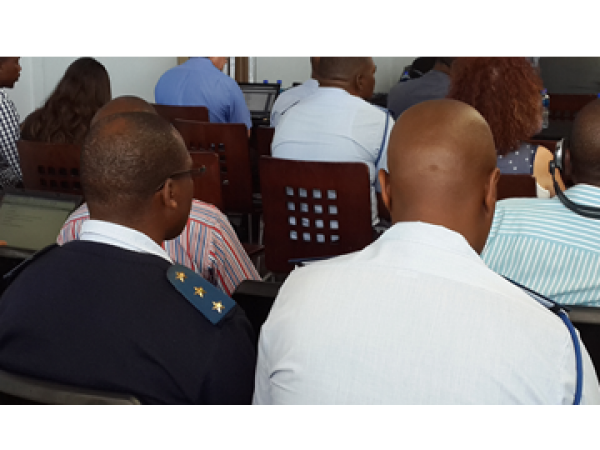High ranking SAPS officers to appear before the Khayelitsha Commission of Inquiry into policing

Public hearings of the Khayelitsha Commission of Inquiry into allegations of police inefficiency and a breakdown in relations between the community and the police restarted on 17 March with a number of high ranking SAPS officers in attendance.
The Commission has been on break since 21 February.
Once again, as in the previous round of hearings, Justice O’Regan queried Adv. Norman Arendse about outstanding documentation SAPS has still not submitted.
Evidence on Monday started with the cross-examination of Colonel Andrew Tobias, former head of detectives at Khayelitsha Site B Police Station.
Adv Lihle Sidaki, in his cross-examination of Tobias, asked Tobias how it was possible for cases to be thrown out of court because dockets were not at court when SAPS had an electronic docket management system.
The system is meant to backup all documents; there should never be a situation where dockets are not at court, argued Sidaki.
The colonel agreed, but said, “The system was on and off, and on and off. There ever wasn’t a whole week where the system worked properly.”
Colonel Nel, former station commander, and Colonel Radibola, current station commander for Harare, gave evidence together.
Harare Police Station is responsible for policing a number of informal settlements. Both officers stated that policing Harare was challenging. Visible policing in informal areas is difficult. Between six and ten officers are required to do foot patrols in an area that does not have proper roads. In a formal area of the same size, only two officers and a vehicle are needed.
Both officers said resources available to police in Harare are insufficient.
Colonel Nel conceded that at times the informal areas were neglected by police because of the difficulty involved in accessing and patrolling.
Colonel Radibola said, “I will not be happy [with the situation] until there is another police station in Harare.”
Over the next nine days, the Commission will hear testimony from numerous officers responsible for policing in Khayelitsha and the Western Cape. The officers providing evidence will increase in seniority, ending with the provincial commissioner, Lieutenant General Arno Lamoer on 1 April.
Next: Seminar looks at finding employment when you’re young, black and poor, and just out of school
Previous: Mthethwa attends politically coloured crime summit in Khayelitsha

This article is licensed under a Creative Commons Attribution-NoDerivatives 4.0 International License.


